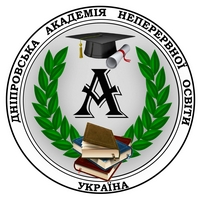RETROSPECTIVE PHENOMENON OF PHILOSOPHY OF EDUCATION AT THE CURRENT STAGE OF DEVELOPMEN
Abstract
The modern era has posed radically new important problems for education and philosophical principles, the philosophy of education is considered the most effective theoretical basis for changes in the field of education which creates conditions for the most complete realization of the spiritual potential of a person. The retrospection of the phenomenon of education and its separation from philosophy, the stages of formation of its conceptual and categorical apparatus and the formation of its institutional forms are traced. The main directions of development of the philosophy of education in the world and in Ukraine are analyzed. The position of reviewing the fundamental principles of the university and university education, which consists in the transformation of the entire system of higher education and its adaptation to the realities of today, is very relevant today. Different approaches and views on the system of modern university transformation, the ambivalent nature of modern higher education and the retrospection of the phenomenon of the philosophy of education at the current stage of development are analyzed. Changes in the philosophy of the functioning of the educational system, ideological reorientations, reproduction of the humanistic nature, which contribute to the transition of higher education educational processes into sustainable innovative trends, have been clarified. The article examines the philosophy of education in the general system of university knowledge in connection with pedagogical theory and practice. Also, the methodology of changing the world's values and goals in the interests of the sustainable development of Ukrainian society and the harmonious development of the individual and the further transformation of a modern university is especially relevant in today's globalized world. Education has always been an objectively necessary condition for the formation of a personality developed in professional, spiritual and general cultural directions. Undoubtedly, any person is characterized by the ability for self-development, self-education, but his life definition, professional, civil and moral formation in different historical eras has its own characteristics, largely due to changes in the education system. In our opinion, the theoretical basis of such changes in education as a complex system of civilizational values has always been and continues to be the philosophy of education, since it lays down the mechanism of self-development and maximizes the inner spiritual potential of every person.
References
2. Адорно Т. Теорія напівосвіти. Філософія освіти. Philosophy of Education, 2017. № 1 (20). С. 128–152.
3. Декарт Р. Дискусія про метод, щоби добре спрямовувати свою рацію й шукати істину в науках. Метафізичні твори. Харків, 2020. С. 45–98.
4. Жулинський М. Національні культури та проблеми глобалізації. Розбудова держави, 2012. № 7–12. С. 3–14.
5. Річицький А. Шевченко в світлі епохи. Київ, 1925. 196 с.
6. Сенека. Моральні листи до Луцілія. Актуальні проблеми філософії та соціології. Львів: Апріорі, 2018. 552 с.
7. Франко І. Зібрання творів: У 50-ти томах. Київ: Наук. думка, 1986. 523 с.
8. Aristotle by John Miles. On Sophistical Refutations. The Internet Classics Archive. On Sophistical Refutations by Aristotle, 2018. 351 p.
9. Augustine St. De Magistro. On the De Magistro of St. Augustine, 1938. 569 p.
10. Cicero M. T. The Academic Questions, Treatise De Finibus. Tusculan Disputation. transl. C.D. Yonge. London: George Bell and Sons York Street Covent Garden, 1875. 600 p.
11. Dewey J. Democracy and education. Delhi: Aakar Books, 2004. 404 p.
12. Johnston J. S. Problems in Philosophy of Education. A Systematic Approach. London; New York; Oxford; New Delhi; Sydney: Bloomsbury Academic, 2019. 250 p.
13. Habermas J. Die Kriese des Wohlfahrtstaates und die Erschöpfung utopischer Energien. Die neue Unübersichtlich.

 ISSN
ISSN  ISSN
ISSN 

